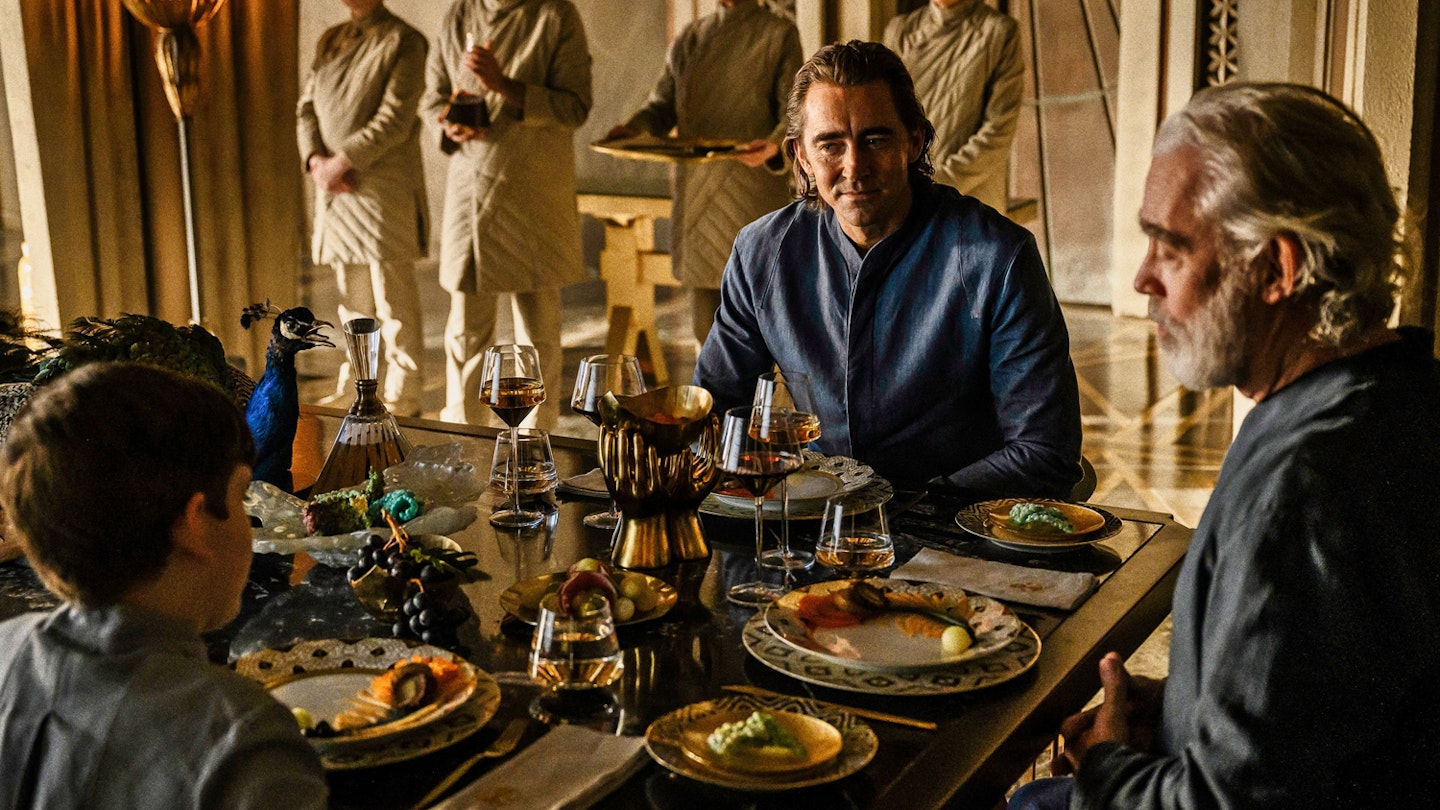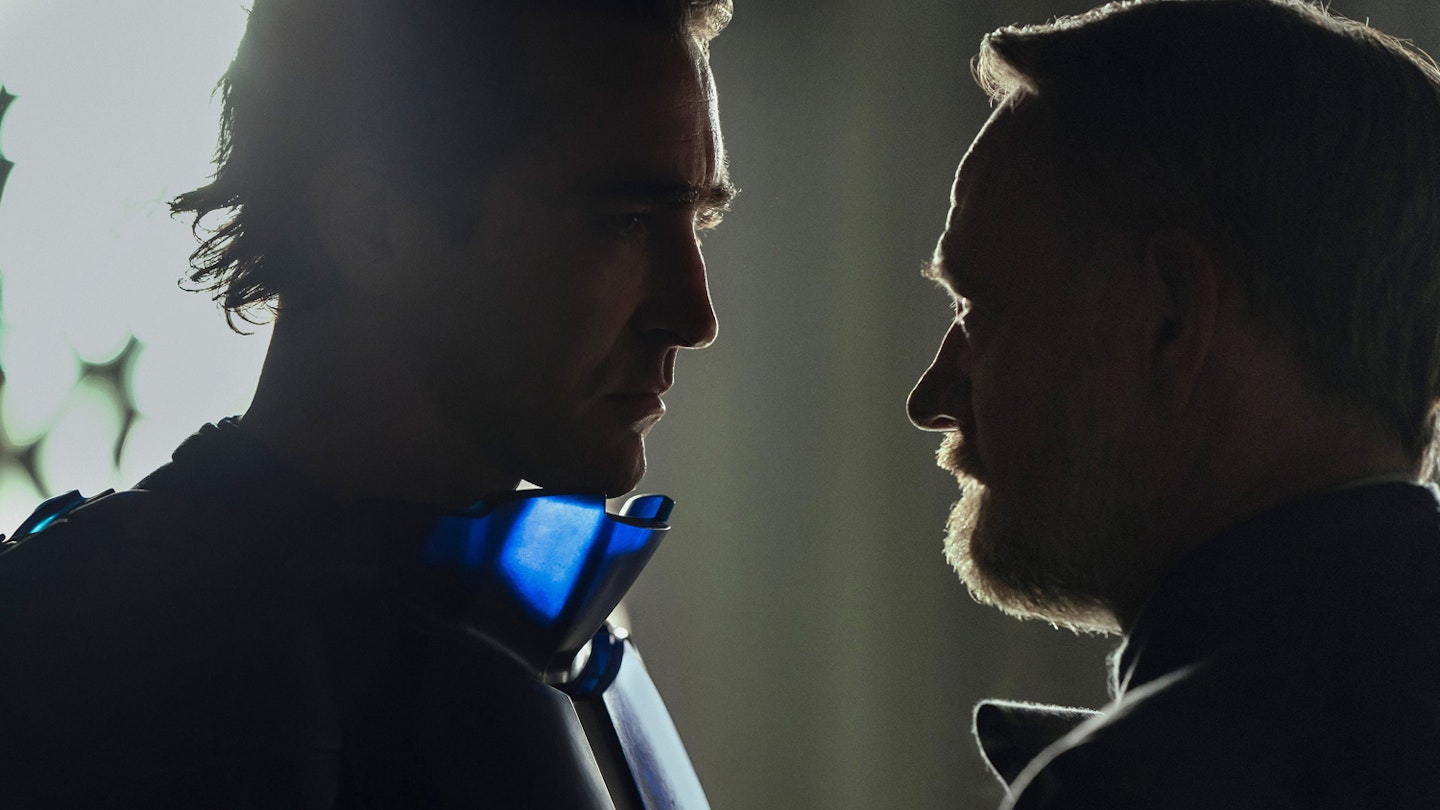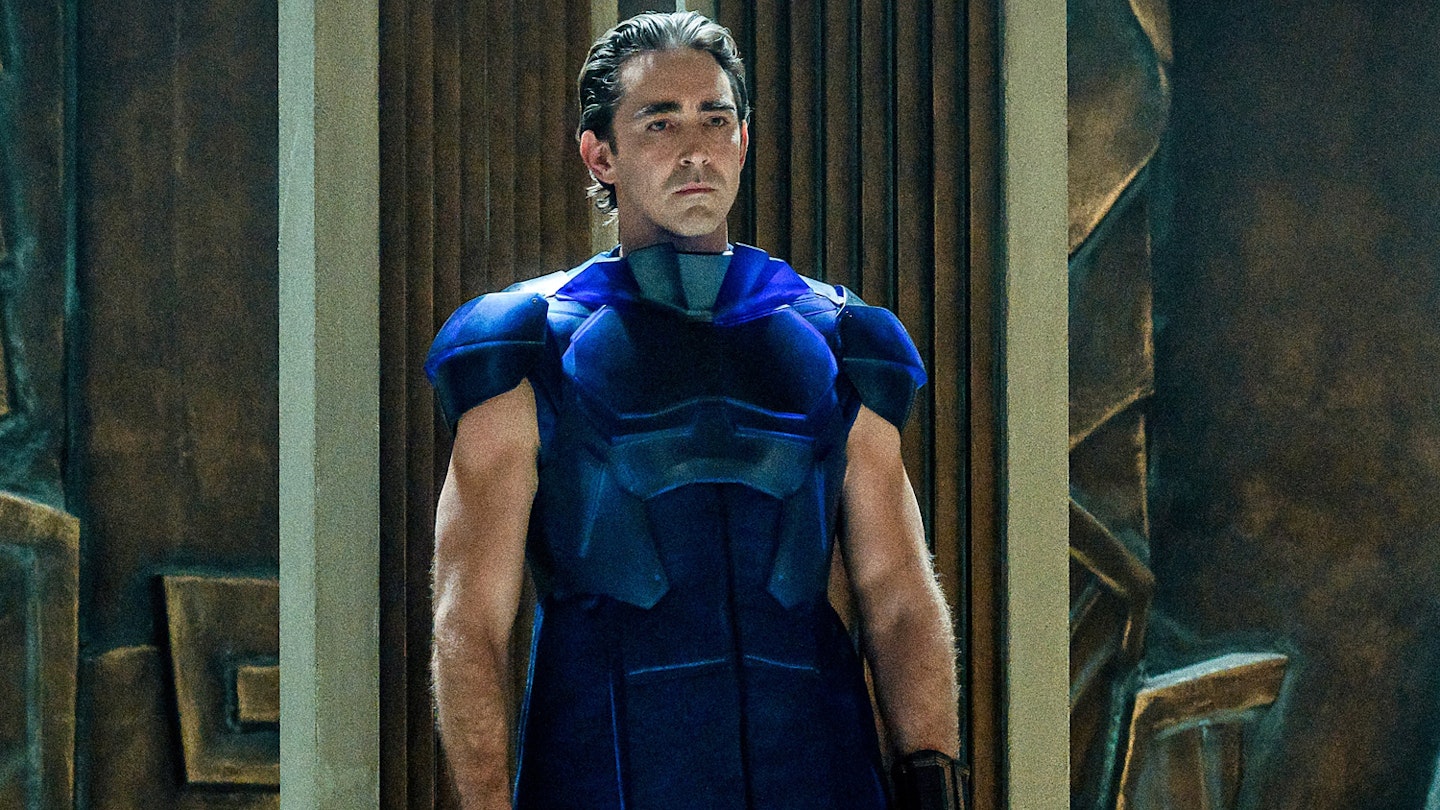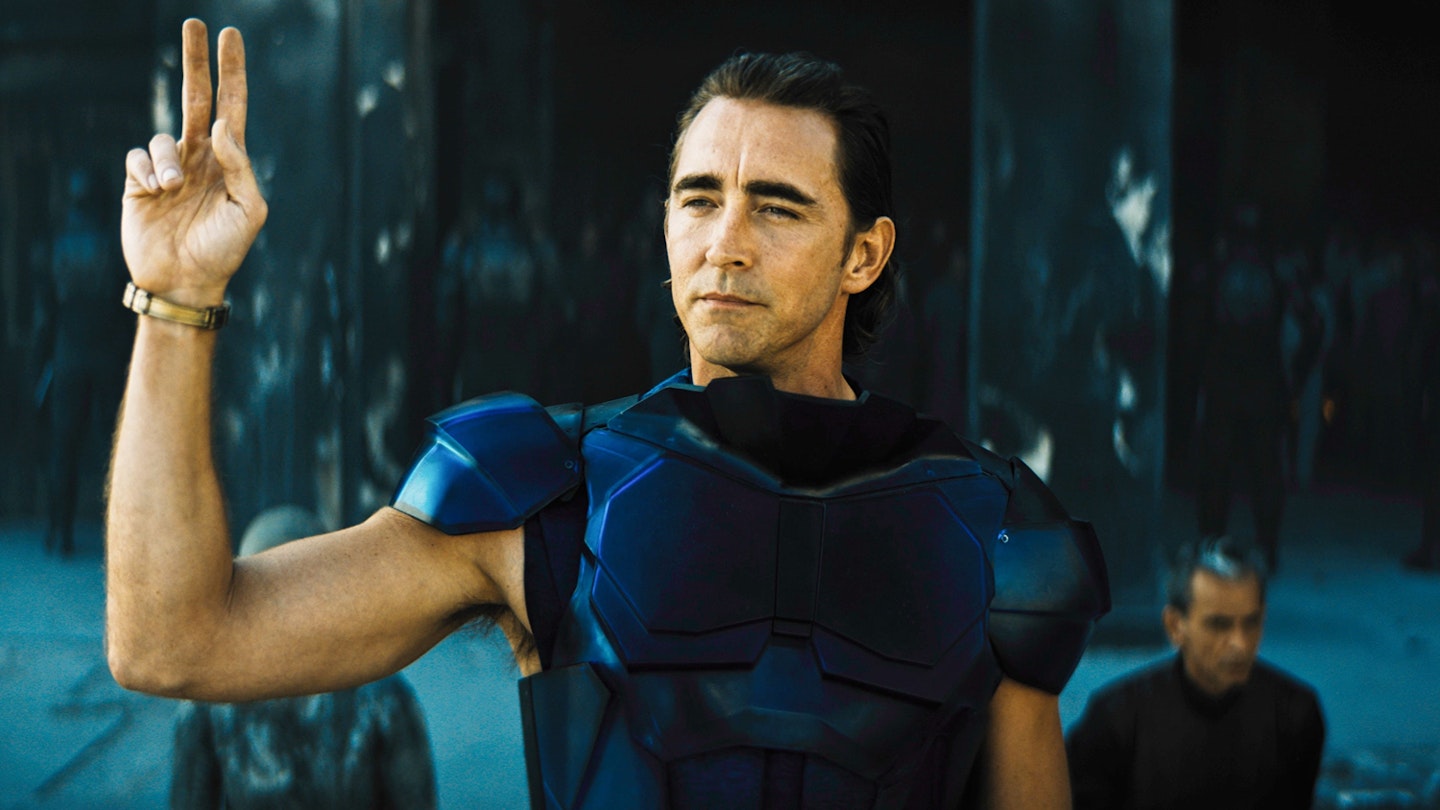A sprawling, hard sci-fi epic rooted in experimental mathmatics and taking place over the course of a thouseand years, Isaac Asimov's Foundation was once (understandably) thought unfilmable. That didn't stop showrunner David S. Goyer, however, and the result — a lavish, big budget series that perfectly captures the spirit of the books — is currently streaming on Apple TV+ (read the Empire review here).
Of all the numerous changes Goyer made to the source material, the most striking is his vision of Emperor Cleon – a ruler split into three separate clones of himself, each at different periods in their lives. Stealing pretty much every scene he's in, Lee Pace is the main face of Foundation's Triple Throne, Brother Day, and he stopped by the Pilot TV podcast last week to talk all about it.

PILOT TV: It's rare that you see this kind of full on hard sci-fi, and Asimov's Foundation is notoriously dense. Did the complexity of the story give you pause coming into this? Or was that part of the appeal?
LEE PACE: No, I'm here for that. I'm a big sci-fi fan. I really appreciate the vein of sci-fi that looks at what humans are when they're off planet. I'd read Foundation about a year before I heard that Skydance was working on the series, and I was like, "There's no way they're gonna pull this off. It's too big. The ideas are too complex. How do you tell a story over 1000 years? It's too much." And then about a year and a half later, they approached me about playing Cleon. I read the first three scripts, and I was like, “David Goyer, cracked it!” He figured it out. He was able to dramatically, emotionally find a way into telling this story by creating characters who cheat death and, in various ways, can move through a large expanse of time.
Of all the things Goyer added, the idea of the genetic dynasty, of splitting Cleon into three different forms — Dawn, Day and Dusk — is the most audacious. What did you make of the Triple Throne when he pitched it to you?
Well, it's a riddle, isn't it? It becomes a riddle of inherited power. One of the things I related to as an actor was that the emperor of the galaxy is a role that many men will fill. It is a role that these clones are trained for through their whole childhood. They learn the lines, they learn the blocking, they understand the character's motivations, they understand the props, the tools, the costumes, and then when they come of age, they inherit the role. And they play it for a time and then they sit off in the wings and watch their brother play the role. But although they believe that they are the same man, they're not. All of the Days look towards the Dusks and think, "I'm going to do this better than you did."
I think that's the riddle of inherited power. The story we're trying to tell at the heart of Foundation is a multifaceted concept of change, and how people respond to change. The side of the argument that Cleon tells is resisting it at all costs, trying to hold on to an imperishable permanence. But you can't fight change. That's, what Hari Seldon (Jared Harris) is able to communicate to them. And once they're convinced that he's right, they have to start improvising.

It's a unique proposition for an actor – playing your father and your son simultaneously. How did you delineate where one Cleon performance ended and the next began?
I'm very lucky to have Terrence Mann, Cassian Bilton and Cooper Carter to play this character with. I went to drama school and the idea of mirror exercises and a physical approach to character is something I love. And Terry was so down for that as well. So one of the first ways into working on the character was finding ways that we mirror each other. What kind of gestures do they do? What is the pacing of lifting the glass to the lips? And in that exercise we found kind of a reality inside the Cleons — that's how they connect to each other, by watching and trying to mirror.
You also get to wear a rather striking beetle-blue armour-robe. Did the imperial regalia help you slip into character?
Oh yeah. Although it's not the most comfortable costume I wore. But it's the outward face of 'Empire', and that shouldn't be a comfortable place. Whereas inside I'm basically wearing really nice sweats, as he's not dressing for anyone. But can I say something that I love about that first costume that was also a great bit of inspiration? Kurt and Bart, who designed that costume, showed me their idea for the armour, for that kind of blue. It was this very old piece of Roman glass, this opaque, very fragile, tiny bottle that looked impossibly fragile. The fact that it had survived all of these years is kind of what makes it so exquisite. That they took that as the inspiration for this armour, I think, says everything about the Cleons.
He's a lazy little lion. But when his back is against the wall, that's when you see that force of person come through.
You do also get to spend an entire episode basically wearing only a loincloth. That must have been the week's filming.
It was. We shot that in the Canary Islands. When David pitched me what that episode was, I was like, "Okay, I'll start getting ready for that!" But what a feast for an actor to play that kind of emotional trial that he goes through. Cleon is cunning and clever. I think about him as, like, a two strike hitter. He's kind of lazy, actually — a pretty lazy little lion. But when his back is against the wall, that's when you see that force of person come through. One of Cleon's curses is that he can't lose. He just can't, he won't. He will always need to dominate.
I want the audience to draw their own conclusions about what power means. What math is worth, what can math quantify. It can quantify the minutes, but does it really create an accurate record of the change that [happens in] those minutes? I think our show really is an investigation. It doesn't offer conclusions, it offers an investigation into what is a human, really. Where does the soul exist? Whether you're looking at the story of Gaal or Hari Seldon, or Demerzel or Cleon or Salvor Hardin, you're looking at a human in the wild. And there's nothing wilder than space.

Before we let you go, we must ask about Pushing Daisies. Even 12 years on, there's been nothing even remotely like it. Do you still have fond memories of making that show?
I do. You know, during quarantine I watched it again and I hadn't really seen it since we it was on air. With the remove of time I got to kind of watch it as an audience and it was emotional in a way, to see Anna Friel again, to hear that music, to see The Pie Hole, to see some of those insane costumes of the dead bodies and whatnot. It was such a privilege to be a part of that show and I will forever feel lucky for it. And also how lucky that so many people have recently discovered it again.
For the full interview and to hear more about Foundation as well as countless other must-see shows, subscribe to the Pilot TV podcast.
